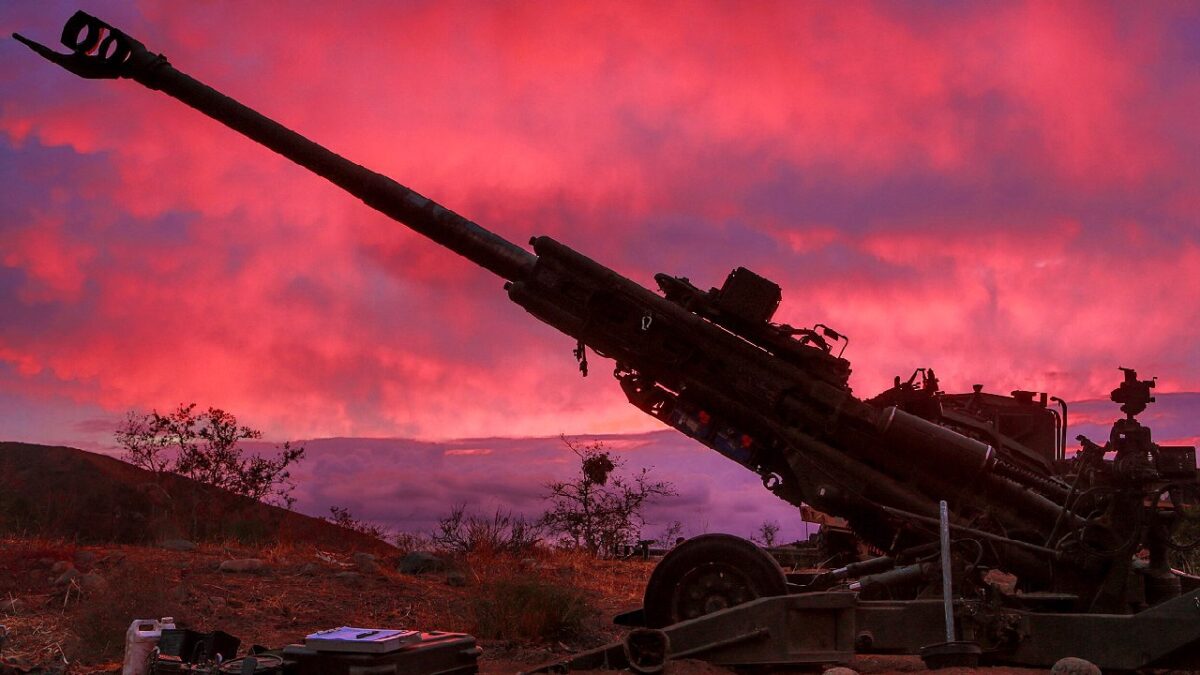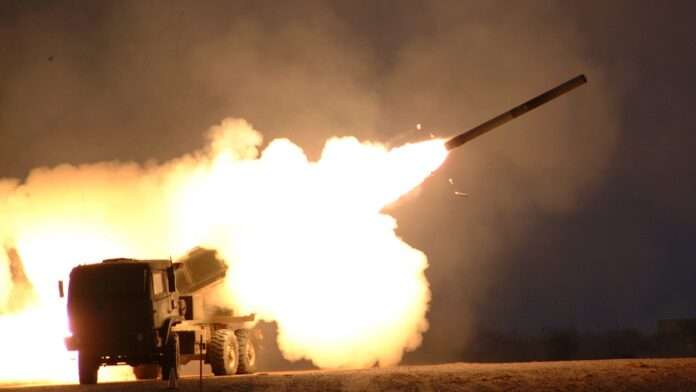HIMARS. This is similar to what is being used in Ukraine.
Washington’s Fraudulent, Rules-Based International Order: Among the many deceptive arguments that Joe Biden’s administration has made about the Ukraine war is that Russia’s invasion is an attack of unprecedented severity on the liberal, “rules-based international order” established at the end of World War II. That allegation has been a constant theme of administration officials and their allies in the news media and the foreign policy blob. Proponents argue that the war is a global existential struggle between order and chaos, free societies and unprincipled aggressors. Biden has stated the thesis succinctly that the Ukraine war is nothing less than “a battle between democracy and autocracy, between liberty and repression, between a rules‐based order and one governed by brute force.”
The argument is shockingly disingenuous. Russia’s aggression, ugly as it might be, is hardly unprecedented in the post-World War II period. Indeed, there have been numerous violations just during the 3 decades since the end of the Cold War, and the lion’s share of them have come from the United States and its allies.
U.S. officials sanctimoniously condemning the use of force against another country may elevate chutzpah to record heights. The United States and its NATO partners bombed secessionist Bosnian Serbs in 1995 to impose a political settlement on Bosnia. Four years later, The United States not only led a NATO air war against Serbia (a fellow member of the United Nations), but proceeded to dismember that country. In 2003, Washington and its allies invaded and occupied Iraq—with NATO members providing well over 90 percent of the combat forces. In 2011, the U.S. and NATO waged an air war to depose Libyan leader Muammar Qaddafi. U.S. troops currently occupy portions of northeastern Syria against the explicit wishes of the Syrian government.
Washington’s reaction to unilateral territorial aggression by close allies is markedly different from its huffing outrage over Russia’s aggression in Ukraine. Turkey seized the northern 37 percent of Cyprus in 1974, and Turkish troops occupy that territory to this day. Washington did nothing more than impose token sanctions on Ankara—sanctions that faded away in a few years. The U.S. reaction has been even less adverse regarding Israel’s seizure and continuing occupation of the Golan Heights and the West Bank, Turkey’s repeated, ongoing military incursions into northern Iraq and northern Syria, and France’s periodic episodes of military intervention in Chad. In all of those cases, Washington not only has refrained from imposing sanctions, but it has also maintained an extensive array of bilateral military and economic ties with the perpetrators.
The rules-based international order is a fictional standard that Washington and its allies disregard whenever convenient. Russia’s actions in Ukraine are reprehensible, but they do not even come close to constituting an existential threat to global order. If Washington had not meddled, the conflict would have been nothing more than a bilateral fight between 2 authoritarian East European states. Even now, it is a proxy war limited to Russia and NATO.
Other nations, especially in the Global South, are wisely sitting this fight out. The noticeable lack of international support–aside from NATO and Washington’s longtime dependents and allies in East Asia – for a confrontational policy toward Russia underscores that reality. To most governments and populations in Africa, Asia, and Latin America, the war looks like a mundane power struggle between Russia and a Western client state, not an existential fight for global order and international law.

M777. Marines with India Battery, Battalion Landing Team 3rd Battalion, 1st Marine Regiment, 15th Marine Expeditionary Unit, prepare to receive a fire mission during MEU Exercise 14 aboard Camp Pendleton, Calif., Nov. 20, 2014. The purpose of MEUEX is to train the different elements of the 15th MEU to work together to complete a wide variety of missions.
(U.S. Marine Corps HDR photo by Sgt. Jamean R. Berry/Released)
As one prominent African scholar put it: “many in Africa and the rest of the Global South do not regard—and never have regarded—the liberal international order as particularly liberal or international. Nor do they consider it to be particularly orderly, considering how much their countries were turned into spheres of influence and arenas for geostrategic competition.”
Despite Washington’s pervasive propaganda campaign, that attitude is not likely to change. Invoking the alleged need to repel Russia’s assault on a liberal, rules-based international order is seen in most of the world as brazenly hypocritical. One wonders if the American people might wake up and reach the same, correct conclusion.
Ted Galen Carpenter, a senior fellow in defense and foreign policy studies at the Cato Institute and a contributing editor at 19FortyFive, is the author of 13 books and more than 1,100 articles on international affairs. His latest book is Unreliable Watchdog: The News Media and U.S. Foreign Policy (2022).




